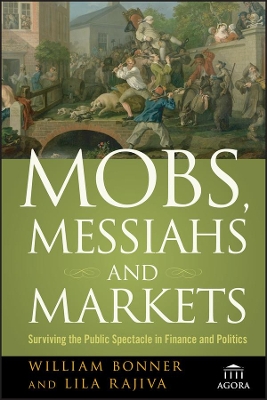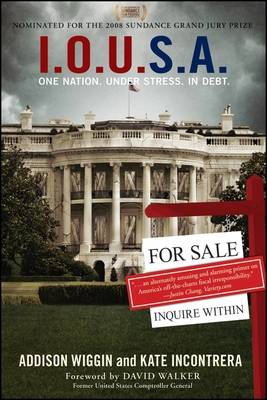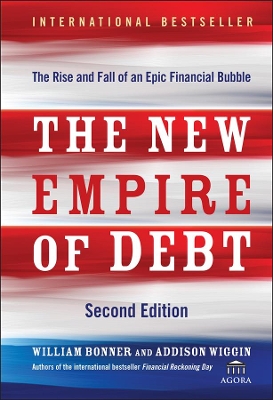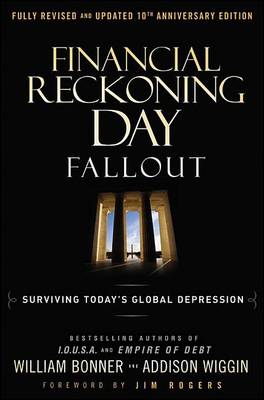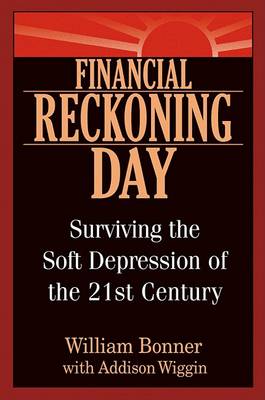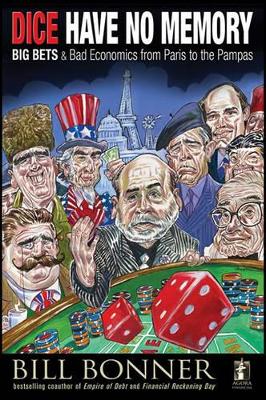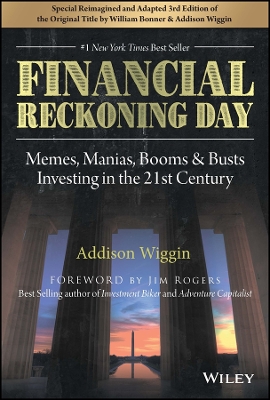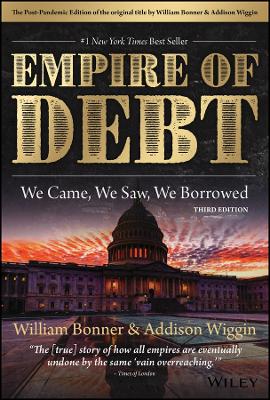Agora
7 primary works • 9 total works
Book 2
An insightful look at how to succeed by going against the crowd
Collectively, people think and act in ways that are different from how they think and act as individuals. Understanding these differences, says William (Bill) Bonner-a longtime maverick observer of the financial world and the vagaries of the investing public-is vital to preserving your wealth and personal dignity. From the witch-hunts of the early modern world to the war on terror, from dot-com mania to the real estate bubble, people have always been caught up in frauds, conceits, and wild guesses-often with devastating results. In Mobs, Messiahs, and Markets, Bonner and coauthor Lila Rajiva show groupthink at work in an improbable array of instances throughout history and reveal why swimming against the current pays.
- Shares the deeper secrets of investing and pushes you to question what this means for your financial well-being
- Explains why people so often abandon good sense and good behavior to "follow the crowd"
- Offers concrete advice on how you can avoid the "public spectacle" of modern finance
The authors' cautionary tale of bubble economies reveals how the gush of credit let loose by Alan Greenspan has wreaked havoc on our lives-but their thoughtful and always entertaining approach also offers some sound investing principles for avoiding the pitfalls of the public spectacle, thinking for yourself, and protecting your money, your sanity, and your soul.
Book 7
Addison Wiggin is the editorial director and publisher of "The Daily Reckoning". The newsletter now has more than 500,000 readers in the United States and Great Britain and is translated daily into French, German, and Spanish. It has received praise from mainstream publications, including "Money". Mr. Wiggin is the author, with Bill Bonner, of the international bestseller "Financial Reckoning Day", and a frequent on national radio and television programs.
Book 32
Book 41
An updated look at the United States' precarious position given the recent financial turmoil
In The New Empire of Debt, financial writers Bill Bonner and Addison Wiggin return to reveal how the financial crisis that has plagued the United States will soon bring an end to this once great empire.
Throughout the book, the authors offer an updated look at the United States' precarious position given the recent financial turmoil, and discuss how government control of the economy and financial system-combined with unfettered deficit spending and gluttonous consumption-has ravaged the business environment, devastated consumer confidence, and pushed the global economy to the brink. Along the way, Bonner and Wiggin cast a wide angle lens that looks back in history and ahead to the coming century: showing how dramatic changes in the economic power of the United States will inevitably impact every American.
- Reveals the financial realities the United States currently faces and what the ultimate outcome may be
- Weaves together the worlds of politics, economics, and personal finance in a way that underscores the severity of the situation
- Addresses the events leading up to the implosion of the U.S. financial system
- Looks ahead to help you avoid the pitfalls presented by a weaker United States
- Other titles by Bonner: Empire of Debt, Financial Reckoning Day, and Mobs, Messiahs, and Markets
- Other titles by Wiggin: I.O.U.S.A., Demise of the Dollar, and Financial Reckoning Day
The United States is heading down a difficult path. The New Empire of Debt clearly shows how this has happened and discusses what you can do to overcome the financial challenges that will arise as the situation deteriorates.
Book 45
Introduces Play's LAMSTAIH process, which stands for Look At More Stuff; Think About It Harder, a systematic approach for harnessing inspiration Outlines the five key drivers for finding new ideas that lead to innovation--Mood, Mindset, Mechanisms, Measurement, Momentum Filled with strategies, tactics, insights, and cases that show how to instill inspiration at all levels CEOs, managers and entrepreneurs alike will find Look At More an invaluable tool for navigating the ever-hungry innovation mandate and turning inspiration into a strategic competitive advantage.
Book 47
'A powerful and insightful vision ...each paragraph stimulates a new rush of thoughts that fills in gaping holes in the investor's understanding of what has happened to their dreams ...while prepping them to confront any new confusion that may arrive' - Martin D. Weiss, author of the bestseller "Crash Profits".
Book 60
Dice Have No Memory gather's Bonner's richest insights from August 1999 through November 2010 to form a chronological narrative of economics in America. Here's a fraction of what you'll find inside: *Gold says "I Told You So" *Three out of Four Economists Are Wrong *Imperial Overstretch Marks *Why Debt Does Matter *Economic Zombies Shuffle Towards Bankruptcy Bonner's Dice Have No Memory offers elegies for economists, tips for investors, tirades against wasteful warfare past and present, and practical guides to modern finance with graceful prose, well-earned intelligence, and riotous irreverence. Bill Bonner's common sense genius rips the window dressing off modern finance - a world normally populated by misguided do-gooders, corrupt politicians, and big bankers empowered by dubious "mathematical" truths. The investing game is rigged, just like Monte Carlo. Instead of giving you magic formulas, this archcontrarian teaches you how to think clearly. And Dice Have No Memory gives today's investor the next moves he should make...before it's too late.
An engaging and practical romp through contemporary financial and economic history—and what it means for your financial future
Economic booms and busts are happening with more frequency. Since the turn of the new millennium, fortunes have been made and lost at a blistering pace. Each boom is like the tension building up before an earthquake. Seismologists can detect the build-up, but they can't necessarily explain why—or when—the next quake will hit. Economic busts can be equally devastating…and followed by numerous aftershocks.
In this entertaining romp through recent economic and financial history, best-selling author, Addison Wiggin, traces the primary trends that have led up to rapid economic growth and innovation while keeping an eye on the inevitable downturn. The author practices "literary economics," telling stories about the characters behind the scenes and their motives, making this wide-ranging book easy-to-read. The current edition has been revised, adapted, and re-imagined, enlightening readers about what's happening behind today's top headlines:
- The rise of new financial innovations over the past decade, including cryptocurrencies, mobile trading platforms, and the democratization of financial markets
- How the policies of the Federal Reserve following the Panic of '08 led an entire generation to become unwitting speculators in stocks, bonds, real estate, and rare commodities
- What impact new political trends—environmental, social, governance (ESG) and diversity equity and inclusion (DEI)—have had on managing your own money
Ultimately, the book helps place current events in the context of identifiable historical trends. The book proposes that when you understand what the primary trends are and follow them to their logical conclusion, it makes planning for your financial future much easier.
What will be the role of the US economy in the future as policy makers try to grapple with new competition, economic and political, from Brazil, Russia, India, China - the so-called BRICs? The author follows the facts, the trends, and the stories that make up history and parlays them into forecasts for what he sees coming next. Ultimately, you'll get a review of previous trades and a new Trade of the Decade.
